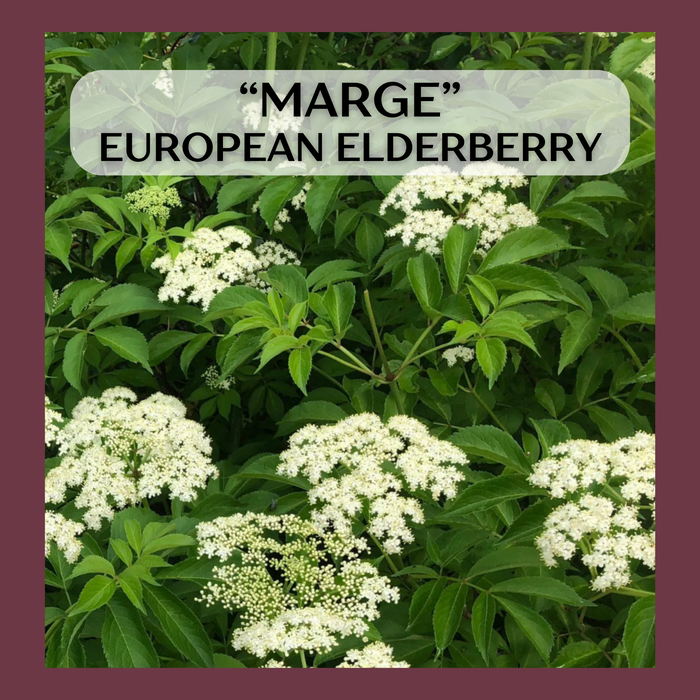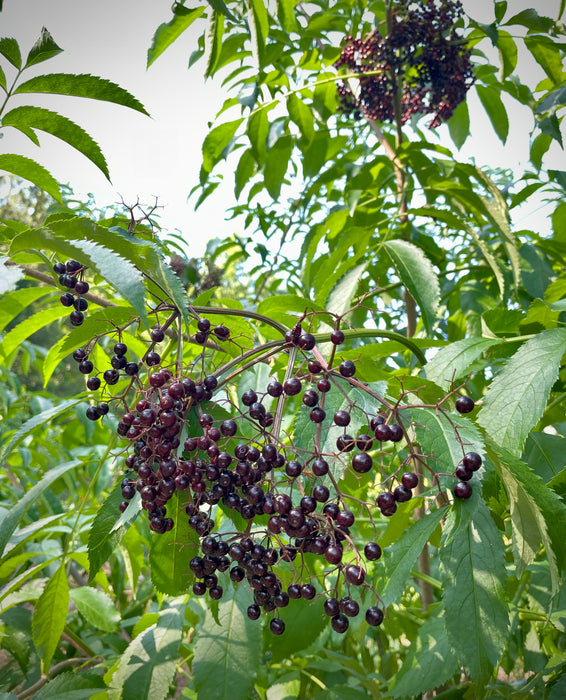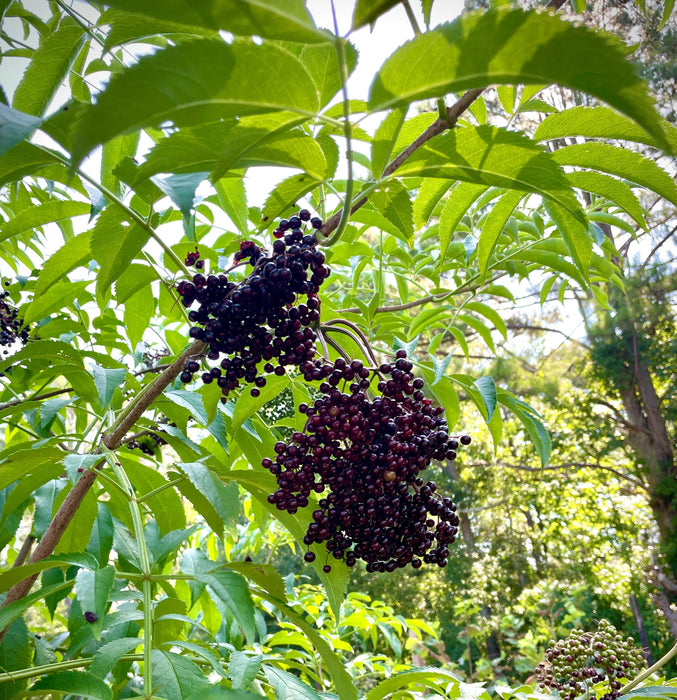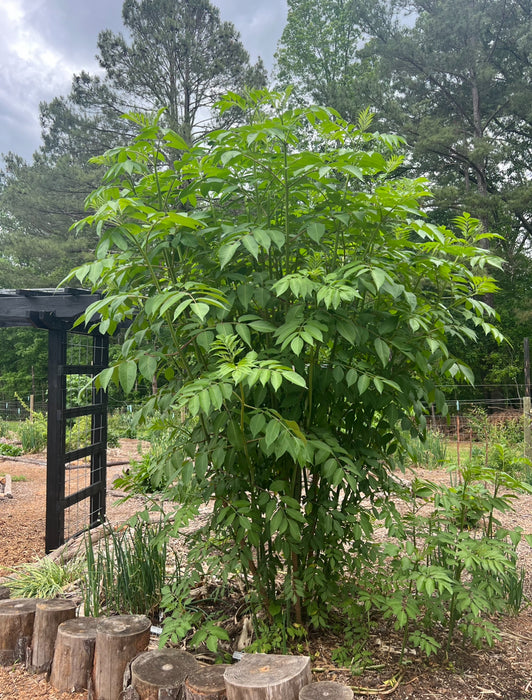
"Marge" European Elderberry
Elderberry is a robust and hardy addition to your garden or food forest. It grows rapidly and blooms with delicate white blossom clusters around June, which some people use to make elderflower cordials or tea. The flowers are soon replaced with dark berries that grow heavier and droop down as they ripen. The berries have been used for ages as an immune-boosting tonic to fight colds, coughs, and other respiratory ailments. Elderberries are to be eaten after they are processed and cooked, however. Fresh eating is discouraged as the berries can be toxic in large amounts. Elderberry also serves as a haven for birds and a food source for an assortment of pollinators. Extend the longevity of elderberry by pruning it back hard every few years, cutting several of the stems all the way to the ground to encourage fresh growth.
Latin Name: Sambucus canadensis x nigra
Site and Soil: full sun to partial shade; well-drained soil
Pollination Requirements: Self, but plant with another European Elderberry variety for increased yield
Bearing Age: 2 years after planting.
Size at Maturity: 10 ft in height depending on soil quality
Bloom Time: May-June
Ripening Time: late summer
Pests & Diseases: Deer love to eat our elderberry here in Georgia, no real pests other than that
USDA Zone: 4-9



